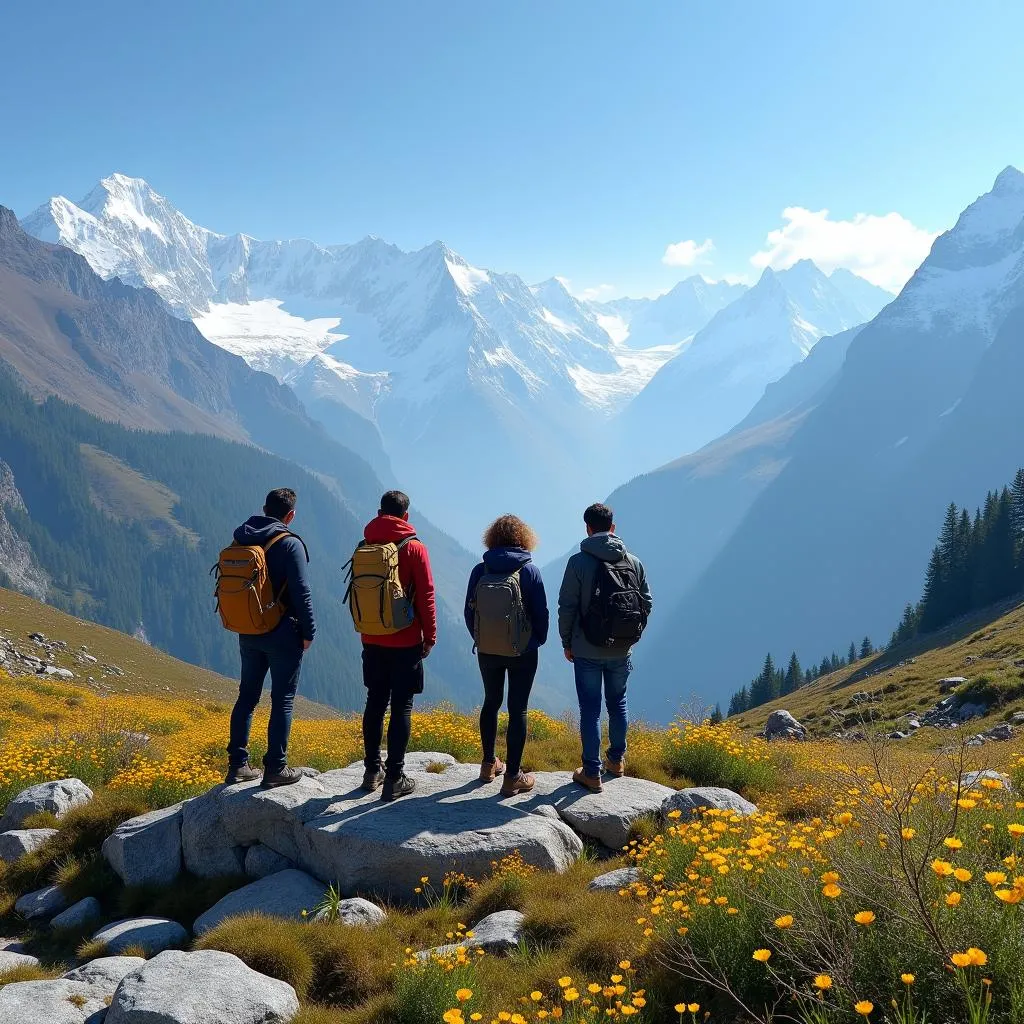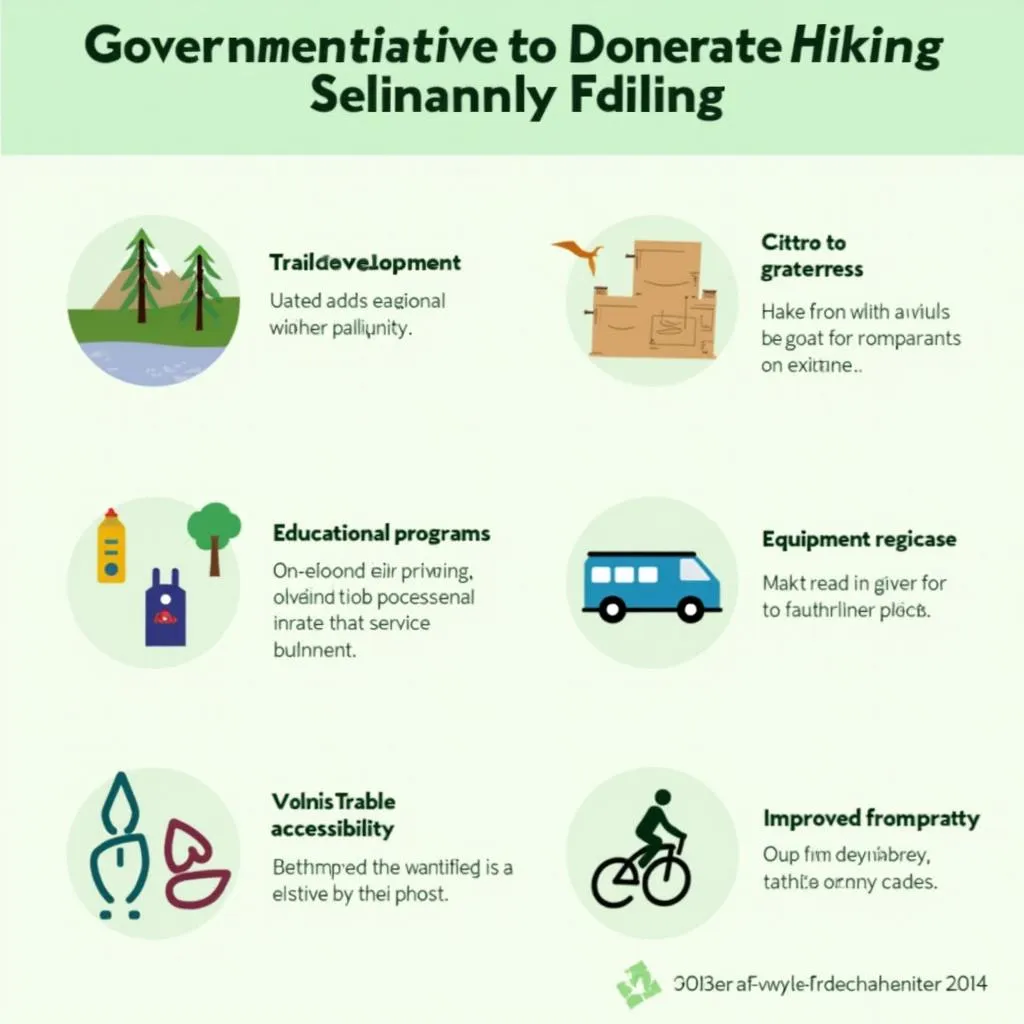Describing a hiking experience is a common topic in IELTS Speaking tests, especially in Part 2. This topic allows candidates to showcase their vocabulary, fluency, and ability to narrate a personal experience. Let’s explore how to tackle this topic effectively across all parts of the IELTS Speaking test.
Nội dung bài viết
Part 1: Introduction and Interview
In Part 1, the examiner may ask general questions about hiking or outdoor activities. Here are some possible questions and sample answers:
- Do you enjoy hiking?
- How often do you go hiking?
- What do you usually take with you when you go hiking?
Sample answer (Band 7-8):
“I absolutely love hiking! There’s something invigorating about being out in nature and challenging myself physically. I try to go hiking at least once a month, usually on weekends when I have more free time. When I hit the trails, I always make sure to bring essentials like plenty of water, energy-rich snacks, a first-aid kit, and a reliable map or GPS device. Of course, comfortable hiking boots are a must for any serious trek.”
Part 2: Long Turn
Here’s a sample cue card related to the topic:
Describe a time when you went on a hike
You should say:
- Where you went
- Who you went with
- What you saw during the hike
- And explain how you felt about this hiking experience
Sample answer (Band 8-9):
“I’d like to talk about a memorable hiking expedition I undertook last summer in the breathtaking Himalayan foothills. This particular trek was to the Valley of Flowers National Park in Uttarakhand, India, renowned for its diverse alpine flora.
I embarked on this adventure with a small group of close friends, all of whom shared my passion for nature and outdoor challenges. We had been planning this trip for months, eagerly anticipating the stunning vistas and unique experiences that awaited us.
The hike itself was nothing short of awe-inspiring. As we ascended through the rugged terrain, we were treated to an ever-changing landscape. The initial part of the trail wound through dense forests, where we caught glimpses of colorful birds and even a few shy deer. As we gained altitude, the vegetation changed dramatically, giving way to sprawling meadows blanketed with a myriad of wildflowers in every imaginable hue. The sight was absolutely mesmerizing – it felt like we had stepped into a living painting.
One of the most breathtaking moments came when we reached a vantage point overlooking the entire valley. The panoramic view of snow-capped peaks in the distance, juxtaposed against the vibrant floral carpet below, was truly spectacular. We also encountered several pristine mountain streams, their crystal-clear waters creating a soothing backdrop to our journey.
This hiking experience left me feeling profoundly moved and reinvigorated. The physical challenge of the trek, combined with the sheer beauty of our surroundings, created a sense of accomplishment and wonder that’s hard to put into words. It was a powerful reminder of the majestic beauty of nature and our place within it. The trek also strengthened the bonds with my friends as we shared this incredible experience.
Moreover, the hike gave me a renewed appreciation for the importance of preserving such pristine natural habitats. It reinforced my commitment to environmental conservation and inspired me to seek out more such experiences in the future. Overall, this hiking trip was not just a physical journey, but a deeply enriching and transformative experience that I’ll cherish for years to come.”
 Hikers enjoying panoramic view of Himalayan foothills
Hikers enjoying panoramic view of Himalayan foothills
Follow-up questions:
- What was the most challenging part of the hike?
- Did you learn anything new about yourself during this experience?
Sample answer (Band 8-9):
“The most challenging aspect of the hike was definitely the steep ascent during the second day. We had to navigate some tricky terrain with loose rocks, which really tested our endurance and balance. However, overcoming these obstacles made the experience even more rewarding.
This hike was truly a journey of self-discovery. I learned that I’m more resilient and adaptable than I had previously thought. Facing the physical demands of the trek and the unpredictable mountain weather pushed me out of my comfort zone and showed me that I can persevere through difficulties. It also reinforced my love for nature and my ability to find peace and clarity in outdoor settings, away from the hustle and bustle of daily life.”
Part 3: Two-way Discussion
In Part 3, the examiner might ask more abstract questions related to hiking and outdoor activities. Here are some potential questions and sample answers:
- Why do you think hiking has become increasingly popular in recent years?
Sample answer (Band 8-9):
“The rising popularity of hiking can be attributed to several factors. Firstly, there’s a growing awareness of the importance of physical health and well-being, and hiking offers an accessible and enjoyable way to stay active. It’s a form of exercise that doesn’t require expensive equipment or gym memberships, making it appealing to a wide range of people.
Secondly, in our increasingly urbanized and digitally-connected world, hiking provides a much-needed escape into nature. It offers a chance to disconnect from technology and reconnect with the natural environment, which many find therapeutic and rejuvenating.
Moreover, social media has played a significant role in popularizing hiking. Stunning landscapes and memorable experiences in the countryside shared on platforms like Instagram have inspired many to seek out similar adventures. This has created a sort of virtuous cycle, where more people are exposed to the joys of hiking, leading to even greater participation.
Lastly, there’s an increasing environmental consciousness among people, especially younger generations. Hiking allows individuals to appreciate nature firsthand, which often translates into a stronger commitment to environmental conservation and sustainable living practices.”
- How can governments encourage more people to engage in outdoor activities like hiking?
Sample answer (Band 8-9):
“Governments can play a crucial role in promoting outdoor activities like hiking through various initiatives. First and foremost, they should focus on developing and maintaining hiking infrastructure. This includes creating well-marked trails, ensuring safety measures are in place, and providing basic facilities like rest areas and information centers.
Educational programs can be another effective approach. By integrating outdoor education into school curricula, governments can instill an appreciation for nature and outdoor activities from a young age. This could include organizing school trips to national parks or offering classes on wilderness skills.
Public awareness campaigns highlighting the health benefits of hiking and the importance of fresh air can also be impactful. These could be coupled with initiatives like ‘National Hiking Day’ or free guided hikes in local parks to encourage participation.
Furthermore, governments could collaborate with outdoor equipment companies to make hiking gear more accessible, perhaps through subsidies or rental programs. This would lower the barrier to entry for those who might be deterred by the initial cost of equipment.
Lastly, improving public transportation to popular hiking areas can make these destinations more accessible to urban dwellers who might not have personal vehicles. This not only encourages hiking but also promotes more sustainable travel practices.
By implementing such multifaceted approaches, governments can foster a culture that values and actively participates in outdoor activities like hiking, leading to healthier, more environmentally conscious communities.”
 Government initiatives to promote hiking and outdoor activities
Government initiatives to promote hiking and outdoor activities
Key Vocabulary and Phrases for High Scores
To achieve a high score in the IELTS Speaking test when discussing hiking experiences, consider using these advanced vocabulary items and phrases:
-
Invigorating (adjective) /ɪnˈvɪɡəreɪtɪŋ/ – making one feel strong, healthy, and full of energy
Example: “The crisp mountain air was incredibly invigorating.” -
Breathtaking (adjective) /ˈbreθteɪkɪŋ/ – astonishing or awe-inspiring in quality, so as to take one’s breath away
Example: “The view from the summit was absolutely breathtaking.” -
Pristine (adjective) /ˈprɪstiːn/ – in its original condition; unspoiled
Example: “We came across a pristine mountain lake during our hike.” -
Panoramic (adjective) /pænəˈræmɪk/ – with a wide view surrounding the observer; comprehensive
Example: “The trail offered panoramic views of the surrounding valleys.” -
Expedition (noun) /ˌekspəˈdɪʃn/ – a journey undertaken by a group of people with a particular purpose
Example: “Our hiking expedition lasted for five days in total.” -
Terrain (noun) /təˈreɪn/ – a stretch of land, especially with regard to its physical features
Example: “The rugged terrain made the hike quite challenging.” -
Flora and fauna (phrase) /ˈflɔːrə ənd ˈfɔːnə/ – the plants and animals of a particular region, habitat, or geological period
Example: “We were amazed by the diverse flora and fauna we encountered during our hike.” -
Reinvigorated (adjective) /ˌriːɪnˈvɪɡəreɪtɪd/ – given new energy or strength
Example: “After the hike, I felt completely reinvigorated and ready to tackle new challenges.”
Tips from an IELTS Examiner
As an IELTS examiner, I recommend the following strategies to excel in the Speaking test:
-
Practice narrating experiences: Regularly practice describing past events, focusing on providing vivid details and expressing your feelings.
-
Expand your vocabulary: Learn and use a wide range of descriptive adjectives and specific nouns related to nature and outdoor activities.
-
Work on fluency: Practice speaking without long pauses. It’s okay to use fillers like “well” or “you know” occasionally, but aim for smooth delivery.
-
Develop your ideas: Don’t just answer questions briefly. Elaborate on your responses and provide examples to support your points.
-
Use a variety of grammatical structures: Incorporate complex sentences and different tenses to demonstrate your language proficiency.
-
Express opinions confidently: In Part 3, don’t hesitate to share your views on abstract topics. Support your opinions with logical reasoning.
-
Listen carefully: Make sure you understand the questions fully before answering. It’s okay to ask for clarification if needed.
-
Stay relevant: Always keep your answers relevant to the question asked, especially in the longer turns of Part 2 and Part 3.
By implementing these strategies and continuously practicing, you can significantly improve your performance in the IELTS Speaking test and increase your chances of achieving a high band score.
 IELTS Speaking test preparation strategies
IELTS Speaking test preparation strategies
Remember, the key to success in the IELTS Speaking test is not just about using advanced vocabulary, but also about communicating your ideas clearly, confidently, and naturally. Good luck with your IELTS preparation and future hiking adventures!


